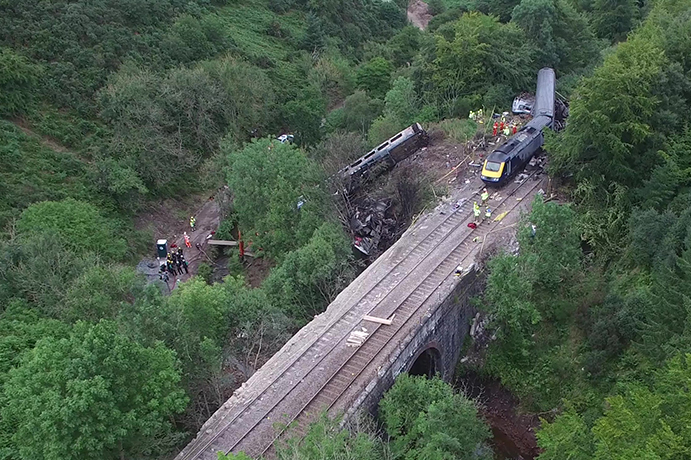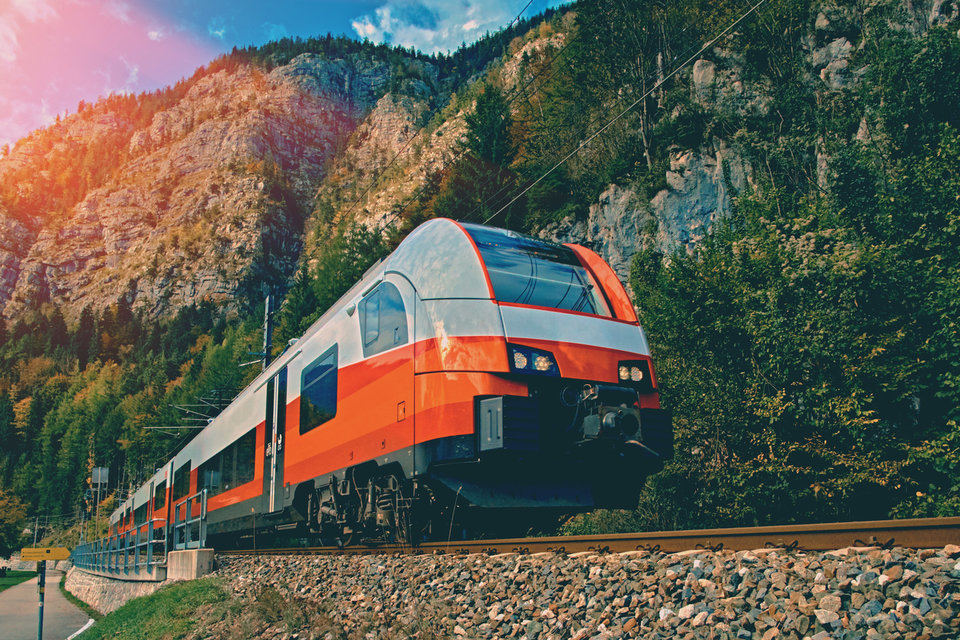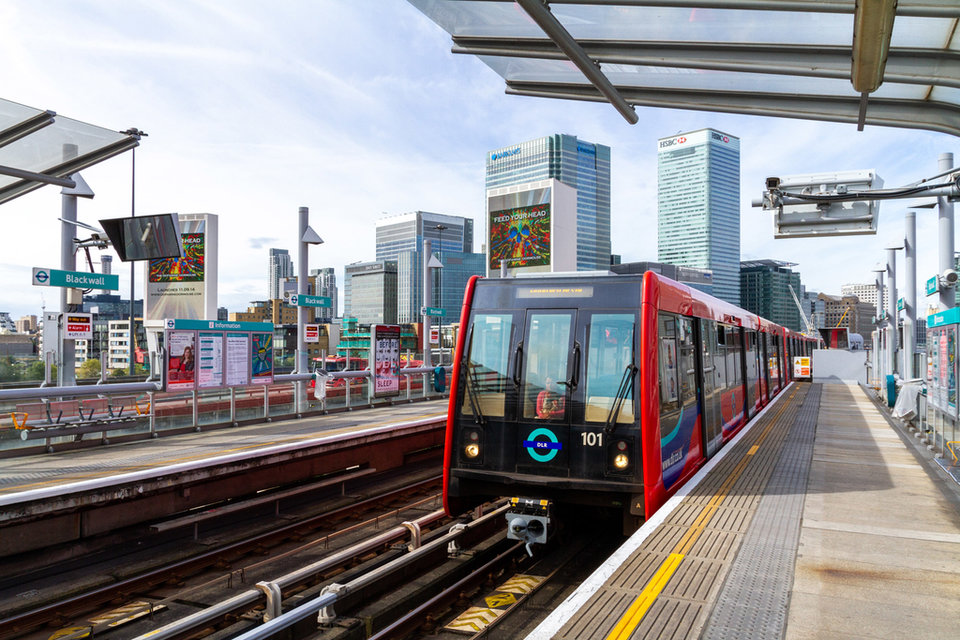Finances
Debate: should railway tax be axed?
UK rail operators are calling for a reform in transport fares and taxes to better reflect and reward the industry’s low carbon footprint. While less polluting than other sectors, critics point out that the rail industry is still a significant polluter with a huge physical footprint. Do railways deserve to be let off the hook in favour of higher aviation taxes, or should train operators still pay a share? Adele Berti and Ilaria Grasso Macola examine the pros and cons.
Adele Berti: Taxing the railways is counter-productive and a smack in the face for sustainability
Adele Berti

It’s supposed to be a fairly straightforward equation: travelling via rail is less polluting, so more people using it equals substantial decreases in the UK’s carbon output. And yet, as passengers and commuters prepare to return to their offices after long months of lockdown, rail fares remain high and are expected to increase by 1.6% in January, based on July’s annual Retail Price Index.
Meanwhile, far bigger polluters in the aviation industry still get away with relatively low air passenger duty, the absence of value-added tax charges (which the railways don’t pay either) for international flight tickets in the EU, and a tax fuel exemption. All the while, rail transport is responsible for up to 85% less carbon per passenger kilometre than several other forms of transport, according to research published by the Campaign for Better Transport.
Sustainability champions such as Germany, Austria and Luxembourg have acknowledged this disparity and are pioneering new initiatives to make rail travel more convenient at aviation’s expense. For example, last year Germany approved a 10% cut in long-distance rail fares for the first time in 17 years. The Austrian Government has promised an expansion of its rail network and plans to increase taxes on flights. Lastly, Luxembourg is making all public transport free.
In
the UK it is now more than six months since Prime Minister Boris Johnson ordered people to “stay at home, protect the National Health Service (NHS) and save lives”. His statement came as the Covid-19 pandemic gripped the nation and the government had to act to reduce the spread of the virus.
Those instructions had a huge impact on the movement of people,both locally and across the country. Schools, workplaces, hospitality and retail venues all closed, with millions staying at home for weeks. For the rail network, this meant passenger numbers fell to levels never before seen. Government figures showed rail and tube usage was just 5% of normal levels during the peak of the lockdown.
At the beginning of May,as restrictions began to be eased,some people took to the daily commute once more, mindful of advice to only use public transport when absolutely necessary. Today restrictions on movement have, to a degree, once again been reimposed as the virus gains another foothold. Rail usage remains significantly reduced, with the public not convinced returning to the country’s towns and cities – and indeed their workplaces – is the safest thing to do right now.

Aerial view of the derailment. Image: UK Government

A Google Earth image showing key locations to the crash. Image: UK Government
These initiatives might be too radical for the UK, but they demonstrate that change is possible. All transport sectors have suffered crippling losses as a result of the coronavirus crisis, but now that travel is slowly picking up again, discouraging passengers from using the railways in favour of cars or air is both counter-productive and a U-turn on all the emissions saved during the months of lockdown.
The Rail Delivery Group (RDG) recently stressed this point as it urged the government for a shakeup of transport taxes that would reward it for its sustainability credentials and help tackle key issues, such as overcrowding and faults in the network. The call for action came at the peak of a damning year for rail franchises, whose finances were bleeding out even before the pandemic and could now become nationalised - much like the case of ScotRail.
According to February’s ‘UK rail industry 2018-19 financial information’ report by the Office of Rail and Road, this is largely due to the government and Network Rail’s inability to complete infrastructure upgrades through the country, industrial action and the delayed delivery of new rolling stock.
With passenger revenues contributing half of the rail industry’s £21.8bn income in 2018-19, any reasonable taxpayer will expect highly efficient services and cutting-edge trains. Yet, once again, the harsh reality is that UK railways are overloaded with issues, from bottlenecks on key sections to confusing timetable overhauls and frightening disparities between peak and off-peak prices.
While these issues may not be entirely attributable to the excessive taxes, the RDG and its members claim that reforming rail fare regulation would help bridge the money gap between peak and off-peak prices, ultimately encouraging more people to take the train even for long-haul journeys. “Modelling suggests that walk-up fares on 80% of long-distance trains would be reduced and the busiest trains would be less crowded,” they added in a press release, “encouraging 300 million more people to travel by train over the next decade.”
With an economic recession looming and state coffers dangerously low, returning to a certain level of normality is needed now more than ever. Whether this will mean supporting national and international tourism or more simply encouraging people to go back to the office, the government will rely on the railways to help the country get back on its feet while still meeting sustainability commitments. This will never be possible if fare prices remain strikingly higher than its road and air alternatives.
Ilaria Grasso Macola: In the fight against climate change, everyone has to do their part, not just big polluters
Ilaria Grasso Macola

It’s true that trains pollute less than planes and cars. According to data from the UK Office of Rail and Road, passenger train emissions dropped by 10.3% to 36.6g carbon dioxide equivalent per passenger kilometre in 2018-2019 compared to the previous year, while freight witnessed a 4.1% decrease in emissions.
Both freight and passenger services have also increased their consumption of electricity over diesel. While passenger services increased their electricity consumption by 9.1% compared to 2017-2018, the rise in freight trains was 12.7%.
These figures seem comforting, but railway operators asking the UK government to “cut them some slack”, increasing taxes on bigger polluters such as the aviation industry would be wrong, because in the fight against climate change everyone has to do their part, not only big polluters.
If the UK Government wants to comply with the Paris Agreement and keep global temperatures from rising above 2°C, it needs to tax all industries that produce carbon emissions. While trains are less polluting than other means of transport, they still have a negative effect on natural habitats.
According to researchers from the University of Lavras in Brazil, not only can railways produce disturbances such as noise and vibration, but they also contribute to soil and water pollution, leading to loss of vegetation and the death of wildlife.

A Google Earth image showing key locations to the crash. Image: UK Government
Some experts believe that cutting taxes in the railway sector whilst increasing them for aviation could make things worse. According to Philip Booth, a senior academic fellow at the Institute of Economic Affairs (IEA), cutting taxes on trains without simultaneously applying higher taxes to aviation would actually produce more emissions.
If rail journeys were to become substantially cheaper, people would travel via rail more not only for leisure but also for work. People could decide to live further away and commute to their place of work, actively increasing CO2 emissions.
“If the number of people switching from planes to trains is small as a result of the subsidy, but many more people travel more in general, then the measure will increase carbon emissions,” wrote Booth in an IEA blog post.
In the EU, airlines are part of an emission trading scheme, allowing companies to buy and sell emission allowances. In this scenario, subsidising trains would be pointless because if there are fewer planes in the air, airlines could easily sell their allowances to other big polluters.
The solution is simple: to tax every industry that contributes to climate change, regardless if they pollute more or less.
“The fact is that if we accept the arguments relating to anthropogenic climate change, there is no such thing as a free lunch,” wrote Booth. “Creating the illusion of one by subsidising activities that are less-big emitters, but nevertheless still produce carbon emissions, is bad economics and very bad climate change policy.”
If the railway industry is not ready to do its part, how can it ask others to do more?